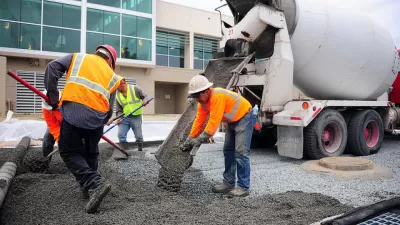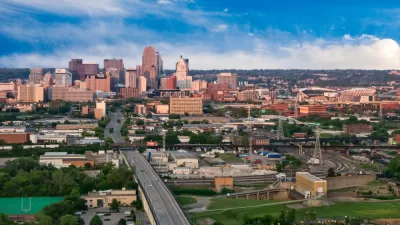In order to save Coney Island from dwindling unemployment rates and high poverty levels, developers rezone the 46-year-old amusement park, but the plans may never actually leave the paper.
A new Coney Island is in the works, one that affords its visitors more than bright pink cotton candy and a warm sense of nostalgia. As part of the city's plans to boost the area's economic development, the Coney Island Development Corporation and the Economic Development Corporation aided in the rezoning and redesigning of the site to include mixed-use residential and retail to bring in new residents and create year-round jobs. "The hope at the time was that by dropping some high-end residents into Coney Island, as well as new storefronts along Surf Avenue that could host restaurants, movie theaters and other year-round attractions, local residents could finally have access to more than the seasonal jobs that have traditionally accompanied the summer beach season," writes Neil deMause.
Many issues and concerns arise from talk of redevelopment, including having to come to terms with the sewage and flooding problems that are a result of the site's vulnerability to rising sea levels. "'The whole peninsula is in need of [infrastructure work],' says CB13 district manager Chuck Reichenthal. 'You can't put up highrise hotels, buildings, or anything else, when what exists now has flooding problems.'" The University of Arizona created this sea-level mapping tool to visualize potential threats. Assessing these and other risks, the EDC has decided on a "30-year plan" for redevelopment, which they believe will give them ample time to address the crucial areas of concern as well as the costs, which, "according to city figures, could run close to half a billion dollars, making it one of the most expensive city redevelopment projects of the Bloomberg era."
With the degree of time and money being set aside to see this project through to completion, locals are demanding that employment opportunities are at the top of the list of the development's outcomes. The Coney Island CLEAR coalition, made up of "representatives of several city unions and a handful of locals (most prominently Rev. Connis Mobley of the West End's United Community Baptist Church), lobbied for job guarantees for local residents as part of the rezoning." Whether or not this plan will come to fruition and answer the call of local demands is unclear. An EDC spokesperson states: "We're less than three years into a 30-year redevelopment plan and significant progress has already been made. We're confident the 2009 rezoning lays out a practical pathway going forward."
Thanks to Nekoro Gomes
FULL STORY: Coney Island's Invisible Towers

Maui's Vacation Rental Debate Turns Ugly
Verbal attacks, misinformation campaigns and fistfights plague a high-stakes debate to convert thousands of vacation rentals into long-term housing.

Planetizen Federal Action Tracker
A weekly monitor of how Trump’s orders and actions are impacting planners and planning in America.

San Francisco Suspends Traffic Calming Amidst Record Deaths
Citing “a challenging fiscal landscape,” the city will cease the program on the heels of 42 traffic deaths, including 24 pedestrians.

Defunct Pittsburgh Power Plant to Become Residential Tower
A decommissioned steam heat plant will be redeveloped into almost 100 affordable housing units.

Trump Prompts Restructuring of Transportation Research Board in “Unprecedented Overreach”
The TRB has eliminated more than half of its committees including those focused on climate, equity, and cities.

Amtrak Rolls Out New Orleans to Alabama “Mardi Gras” Train
The new service will operate morning and evening departures between Mobile and New Orleans.
Urban Design for Planners 1: Software Tools
This six-course series explores essential urban design concepts using open source software and equips planners with the tools they need to participate fully in the urban design process.
Planning for Universal Design
Learn the tools for implementing Universal Design in planning regulations.
Heyer Gruel & Associates PA
JM Goldson LLC
Custer County Colorado
City of Camden Redevelopment Agency
City of Astoria
Transportation Research & Education Center (TREC) at Portland State University
Jefferson Parish Government
Camden Redevelopment Agency
City of Claremont





























